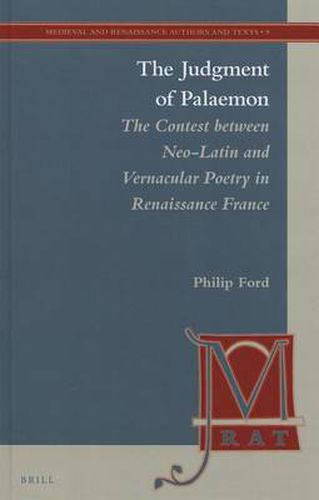Readings Newsletter
Become a Readings Member to make your shopping experience even easier.
Sign in or sign up for free!
You’re not far away from qualifying for FREE standard shipping within Australia
You’ve qualified for FREE standard shipping within Australia
The cart is loading…






In Virgil’s third Eclogue, Palaemon concludes the poetry competition between Menalcas and Damoetas by saying that he cannot choose between them, a judgment that is emblematic of the contest between Neo-Latin and vernacular poetry in Renaissance France. Both forms of poetry draw on similar roots, both are equally accomplished, and the contest between them is largely amicable. The Judgment of Palaemon illustrates the almost symbiotic relationship between Renaissance Latin and French poetry, while exploring poets’ motivation for choosing one language over another, the different challenges each form of writing involved, and the extent of the collaboration between different language communities. It focuses on some of the major writers of the period, as well as less well known ones, and on genres specific to humanist poetry. It shows that composing in Latin was often considered more natural, at a time when many Frenchmen’s mother tongue was a non-standard French dialect or distinct language.
$9.00 standard shipping within Australia
FREE standard shipping within Australia for orders over $100.00
Express & International shipping calculated at checkout
In Virgil’s third Eclogue, Palaemon concludes the poetry competition between Menalcas and Damoetas by saying that he cannot choose between them, a judgment that is emblematic of the contest between Neo-Latin and vernacular poetry in Renaissance France. Both forms of poetry draw on similar roots, both are equally accomplished, and the contest between them is largely amicable. The Judgment of Palaemon illustrates the almost symbiotic relationship between Renaissance Latin and French poetry, while exploring poets’ motivation for choosing one language over another, the different challenges each form of writing involved, and the extent of the collaboration between different language communities. It focuses on some of the major writers of the period, as well as less well known ones, and on genres specific to humanist poetry. It shows that composing in Latin was often considered more natural, at a time when many Frenchmen’s mother tongue was a non-standard French dialect or distinct language.